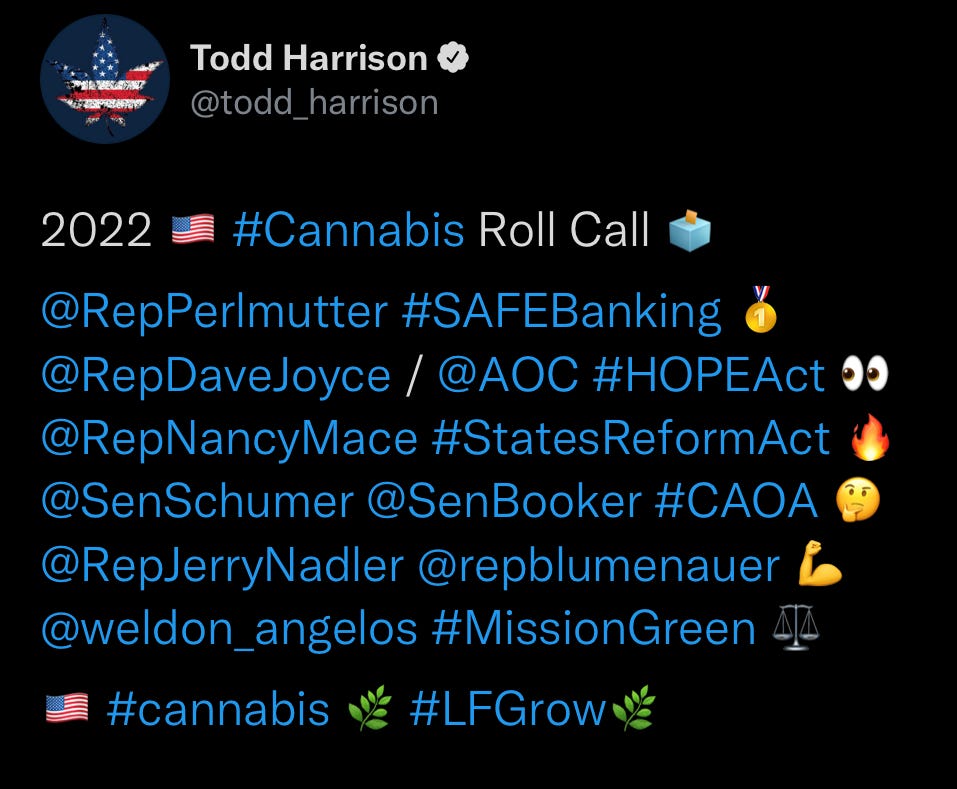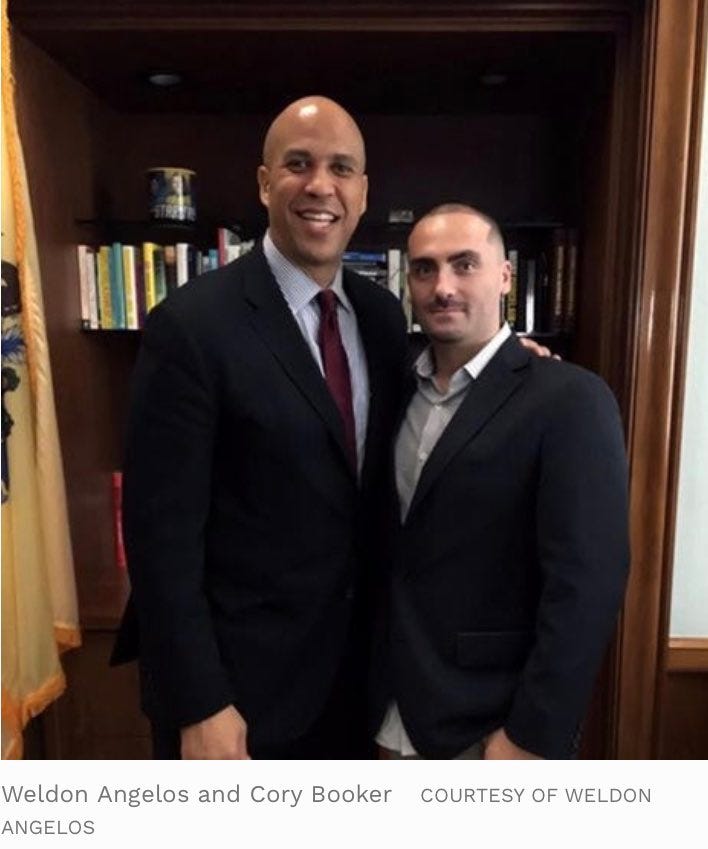It’s been a rough ride for U.S cannabis investors, who last week observed the one-year anniversary of the February 10 cyclical top. And while the landscape has evolved into the mirror image of where it was in 2021, offering those with a keen sense of timing a second bite at this generational apple, a lot of stakeholders are licking some wounds.
2022 wasn’t exactly a fresh start, either. U.S cannabis ETF $MSOS lost 18% in January as risk melted on Wall Street, bringing the total drawdown from last February to 65%. It wasn’t just the duration that sucked but the persistence: the index lost ground every single month since we last saw the Super Bowl.
There’s a lot going on in the world (Ukraine), the markets (curve > Fed) and yes the U.S cannabis sector (volume / relative strength / emerging signs of a stealth bull). We talk about such things most weeks—OK fine, every day—in an effort to help contextualize the space / navigate our forward path and we’ll continue to do so with best intentions.
Today, however, we’re going to go in a different direction and share the story…
…of Weldon Angelos. In 2003, Weldon was an upcoming music producer / recording artist who had collaborated with luminaries like Snoop Dogg and Tupac Shakur’s recording group. He was working with stars like 2Pac, Snoop, P!nk, and Nas and several artists had traveled to Salt Lake City, Utah, where he lived, to record music.
At the time, Federal authorities had gangsta-rap in their crosshairs and assumed they were trafficking drugs so they set up a sting operation / sent a confidential informant to buy $300 of cannabis from Weldon on three separate occasions. Weldon sold the weed to help make ends meet and was subsequently raided by a federal task force.
Utilizing the criminal code, prosecutors turned those three small transactions into twenty distinct federal crimes, including five counts that mandated 105 years in prison. He was convicted in federal court on 16 of 20 counts and sentenced to a mandatory 55 years in federal prison without the possibility of early release.
The federal judge who was forced to impose the punishment—a conservative GW Bush appointee named Paul Cassell—described the sentence as “cruel, unjust, and even irrational” and spoke out against the sentence. The judge was so incensed, in fact, he resigned from his life-time appointment to advocate for Weldon’s release.
In 2016, after widespread effort to secure his freedom by elected and appointed government officials, celebrities, advocates, business leaders and media outlets, Weldon was finally released from prison after serving 13 years for a first-time, cannabis-related offense and in December of 2020, he was fully pardoned by President Trump.
As Weldon works to reclaim his life, his fight to end The War on Drugs and mass incarceration continues. Thousands of people are still in federal and state prisons across the country for cannabis-related offenses and with the normalization / state-level legalization of the industry, he’s working to right the remaining injustices.
He helped drive the passage of The First Step Act and was instrumental in pushing for President Trump’s final clemency grants of nearly a dozen individuals serving life sentence for marijuana. He’s now working with the Biden administration in an effort to create a clemency program for cannabis prisoners.
Why Now?
The frustration with our elected leaders is palpable. President Biden made a campaign promise that he would solve for this and while his Press Secretary assures us he has “every intention of using his clemency power” and is “looking at” relief for non-violent cannabis offenders, no meaningful action has been taken to date.
We have every reason to expect the president to follow through on his pledge in this election year—the midterms are coming up quickly and the Dems badly need a win—but that only solves a small portion of this endemic issue. There are 2700 inmates in the federal system for non-violent cannabis offenses; all the rest are in state prisons.
Enter The #HOPEAct, which encourages state / local expungement programs for non-violent cannabis offenses (there is only federal clemency; expungements must occur at the state level). This nifty bill doesn’t require states to do anything but those that do will be rewarded through a new grant program under the U.S Department of Justice.
Importantly, this bill has bipartisan support in the House or Representatives, having been introduced by Rep Dave Joyce (R-OH) and Alexandria Ocasio-Cortez (D-NY)…
…and last week, it picked up what we believe to be a rather significant endorsement…
…which matters both in the grand scheme of righteousness…
…and as it pertains to the political calculous of what’s happening on the Hill…
…because if you take Senator Booker at his spoken and repeated word…
…there can be no #SAFEBanking without criminal justice reform. It was a massively unpopular stance in November when the Senate blocked SAFE for the fifth time and Rep Ed Perlmutter (D-CO) has again attached canna banking to must-pass legislation, this time via the #COMPETES Act, and the House Rules Committee has his back.
Conventional wisdom is that senate will pay-SAFE no-mind—just last week, Sen. Schumer asked other Senators for help with his plan…
…and if November taught us anything, it’s that politics are hard to predict. But as the clay takes shape and legislators try to unwind all those acronyms into a passable and positive package, there’s one thing we know: criminal justice reform will be critical.
I don’t know if the #HOPEAct emerges as the key to #SAFEBanking—it would need Senate sponsors to be considered a viable pathway to criminal justice reform—but I reckon that if we want to be on the right side of the market, we might as well situate ourselves on the right side of history, as well.
CB1 Capital is proud to stand with Weldon Angelos in his effort to right the wrongs of The War on Drugs. The Weldon Project is a 501(c)3 nonprofit organization that is fighting to end incarceration for non-violent cannabis offenses and all donations are tax deductible. It is a just and noble effort from a just and noble man.
It remains to be seen if 2022 is the year that cannabis—and cannabis prisoners—break free from the shackles of antiquated, misguided and racist laws; one can only Hope.
But we can each do our part: please donate here and / or help spread the word.
And thank you, on behalf of all of the people who can’t thank you themselves.
position / advisor $MSOS
















